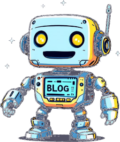The AI Revolution: Latest Trends Shaping Our Future
As we dive into 2025, artificial intelligence continues to evolve at a breakneck pace, transforming industries and reshaping our daily lives. From groundbreaking scientific discoveries to ethical concerns, let’s explore the latest trending AI news that’s capturing headlines and imaginations worldwide.
Multimodal AI Takes Center Stage
One of the most exciting developments in AI is the rapid advancement of multimodal models. These sophisticated systems can process and generate content across various formats, including text, images, audio, and video.
Google’s Gemini 2.0, released in early 2025, exemplifies this trend. The model can seamlessly analyze complex data sets, combining insights from satellite imagery, scientific papers, and real-time sensor data to tackle challenges like climate change prediction and drug discovery[1].
Dr. Fei-Fei Li, Professor of Computer Science at Stanford University, notes: “Multimodal AI is not just about combining different types of data. It’s about creating AI systems that can reason across modalities in ways that mimic human cognition. This opens up entirely new possibilities for problem-solving and creativity.”
AI Agents Revolutionize Work and Productivity
The concept of AI agents – autonomous AI systems that can perform complex tasks with minimal human intervention – has moved from science fiction to reality. These agents are reshaping how businesses operate and how individuals manage their daily lives.
OpenAI’s “Operator,” launched in January 2025, serves as a personal AI assistant capable of handling various online tasks, from ordering groceries to processing ticket purchases[7]. This marks a significant leap from traditional chatbots, showcasing AI’s growing ability to navigate real-world scenarios.
A recent study by McKinsey Global Institute found that 33% of organizations are now using AI agents regularly in at least one business function, with 40% planning to increase their AI investments due to these advancements[11].
Scientific Breakthroughs Powered by AI
The integration of AI into scientific research has led to remarkable discoveries across various fields. In February 2025, Google introduced the “AI co-scientist,” a multi-agent system built on Gemini 2.0, designed to accelerate scientific breakthroughs[10].
This system has already demonstrated its potential in areas such as:
- Target discovery for liver fibrosis treatment
- Explaining mechanisms of antimicrobial resistance
- Generating novel hypotheses in complex scientific domains
Dr. Juraj Gottweis, Google Fellow, explains: “The AI co-scientist is not meant to replace human researchers but to augment their capabilities. It can process vast amounts of scientific literature, generate hypotheses, and even suggest experimental protocols, significantly speeding up the discovery process.”
Ethical Concerns and Regulatory Challenges
As AI becomes more powerful and pervasive, ethical concerns and regulatory challenges are coming to the forefront. The rapid development of generative AI and autonomous systems has sparked debates about privacy, bias, and the potential for misuse.
In response, governments worldwide are scrambling to develop comprehensive AI regulations. The European Union’s AI Act, finalized in early 2025, sets a global precedent for AI governance, categorizing AI systems based on their potential risks and imposing strict requirements on high-risk applications[5].
The Future of Work in an AI-Driven World
The impact of AI on the job market remains a hot topic. While fears of widespread job displacement persist, the reality is more nuanced. A study by the World Economic Forum predicts that AI will create 97 million new jobs by 2025 while displacing 85 million[14].
The key lies in reskilling and upskilling. AI literacy is becoming essential across all industries, with companies and educational institutions alike focusing on developing AI-related skills among workers.
Harvard professor David Deming observes: “The businesses that will thrive are those that can effectively combine human creativity and expertise with AI capabilities. It’s not about replacing humans, but about augmenting human potential.”
Looking Ahead: What’s Next for AI?
As we look to the future, several trends are worth watching:
- Quantum AI: The intersection of quantum computing and AI promises to solve complex problems at unprecedented speeds.
- Explainable AI: As AI systems become more complex, there’s a growing focus on making their decision-making processes transparent and interpretable.
- AI in Healthcare: From drug discovery to personalized treatment plans, AI is set to revolutionize healthcare delivery and outcomes.
Conclusion
The AI landscape is evolving rapidly, bringing both exciting opportunities and significant challenges. As we navigate this new frontier, it’s crucial to stay informed, engage in ethical discussions, and prepare for a future where AI plays an increasingly central role in our lives and work.
To learn more about these trends and their implications, consider exploring resources from reputable organizations like the MIT Technology Review, Stanford AI Lab, or attending conferences like NeurIPS or ICML.
What are your thoughts on these AI trends? How do you see AI impacting your industry or daily life? Share your perspectives and join the conversation about our AI-driven future.
